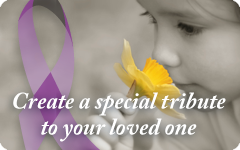Frequently asked questions
Here are answers to some of the questions that are frequently asked relating to the death of a loved one. If there is something we have not mentioned, please do not hesitate to contact us.
What do I do when someone dies?
If the death happens at home and was expected, you should tell:
- the person’s doctor
- a funeral director
A doctor will usually visit to confirm death and to give permission for the funeral director to take the person to a safe place.
Sometimes the doctor can give permission without the need for a visit. If this happens, the doctor will issue a death certificate later. You will need this to register the death, so keep it safely.
If the death was unexpected, violent or unusual in any way, you will also need to tell the police. This may feel alarming, but it is necessary, as the death may have to be reported to the Coroner. The police will be sensitive to the situation and will liaise with the Coroner.
If the death happened in a hospital or residential home the staff there will usually contact a doctor and arrange for the death certificate to be issued.
Residential homes are usually aware of their residents’ preferred funeral director and they can often make the call for you. Hospitals usually ask you to contact a funeral director yourself.
What services do you offer?
Organising a funeral can involve contact with a large number of firms and individuals (doctors, minister, cemetery, crematoria, newspapers, florists, to name a few) but we can help you with any or all of these. We know the people who we deal with and trust them to provide an excellent service.
We pride ourselves on treating every funeral with the same care and attention to detail that we would wish for our own loved ones, whether a large event in a cathedral, or a private family gathering.
How will the deceased be taken away?
Sometimes the family has to sign a form at the hospital to allow the person to be collected by a funeral director. Once we have been given permission by the hospital, we will bring the person to our premises, quietly and with dignity.
If the death happened at home, or in a residential home, we can normally attend soon after. However, sometimes relatives may wish for the person to stay in the home for a while, perhaps overnight, to allow for a private farewell. We will attend at the most appropriate time afterwards to suit you.
Wherever the death happened, the person will be moved with as much dignity as possible, using specialist equipment as necessary. The person will be placed in a laundered sheet and great care will be taken with jewellery and personal effects.
A discreet vehicle is used to ensure privacy, and unnecessary attention. Upon arrival at our premises strict procedures are followed to ensure that the person can be accurately identified at all times.
How do I register the death?
You will need to take the death certificate issued by the doctor. If you have the person’s medical card, also take that with you. The registrar will ask for the following information about the person who has died.
- The full name and surname of the person (including the maiden name if the person was a married female)
- The person’s usual home address
- The date and place of birth
- The date and place of death
- The person’s occupation (if the person was a married woman, or a widow, they will also ask for the name and occupation of her husband)
- If the person was married, the date of birth of the surviving widow or widower.
The registrar will give you a Green Certificate, which we will need, and a form to send to the Social Security Office with any pension or allowance books. Both of these forms are free, but for a small charge the registrar will give you copies of the death certificate. It is a good idea to get at least three copies, to help when dealing with the person’s estate.
When and where will the funeral be?
Where the funeral will be held may depend on whether the person is to be buried or cremated.
A burial service would normally be held in the church adjoining the churchyard. If the burial is to be held in a cemetery, you may use the cemetery chapel, or another venue for the service such as a church or another place of worship.
The service before a cremation may be held at the crematorium chapel, or at another place of worship, with a committal at the crematorium immediately afterwards.
We can help you decide which venue is most appropriate for you, and we can put you in touch with someone to conduct the funeral with sensitivity to your wishes.
How do I let people know about the arrangements that have been made?
Some families prefer to send cards to people they know, with details of the funeral inside, and we can assist with having these printed.
You may wish for assistance with further notices, such as messages of thanks or acknowledgement, or later, an in memoriam notice.
What do you do to prepare a person for their funeral?
If there is any delay between the death and the funeral, or if you wish to visit the person to say goodbye, we recommend that hygienic treatment be carried out by trained staff. This will allow the person to maintain their dignity right up to the funeral.
May I come and see the person before the funeral?
Very occasionally, visiting the person may not be a good idea and we would discuss this with you.
What kind of funeral should we have?
If the person had a faith, it may be appropriate for the funeral to adhere to appropriate traditions. If the person was of no faith, a secular (non-religious) funeral may be more appropriate.
We can assist with finding a minister or other appropriate person to conduct the funeral, and they will discuss the content of the service with you.
A popular alternative to traditional burial or cremation is a green, woodland or environmentally friendly funeral, in which we specialise.
The choice of music at a funeral service is very personal. We can assist with providing musicians or we can advise on using recorded music.
Family, friends, or the person taking the service may give tributes.
As an alternative to a traditional hearse, we can provide a horse-drawn hearse motorcycle hearse for a more personal touch.
We can also provide limousine transport for family members.
Your may wish to personalise the day further by, for example, releasing a white dove or setting free some balloons.
We have never been a religious family. Do we have to have a vicar to take the ceremony?
What are Green funerals and woodland burials?
Woodland burial grounds are cemeteries, often privately run, where strict rules govern what can and cannot be buried. The burial grounds have been established to provide an alternative burial or funeral service, without loosing any of the respect, dignity and professionalism that you would find in more traditional settings.
What will we do with the ashes?
The ashes can be placed in the crematorium Garden of Remembrance. You may or may not wish to attend when the ashes are laid to rest and this is a personal decision. You may choose the location in the garden if you wish, and can arrange for a memorial if this is appropriate. The crematorium offers many choices and they will show you the gardens and explain the options to you.
A few people still like to keep the ashes of a loved one close to them and may keep them at home, or bury them in the garden. There may be a churchyard or family grave where the ashes can be interred.
Some people prefer to have the ashes scattered in a place that is personal to them – a fisherman may like to be scattered at the coast, a walker on a hilltop, or a golfer on a favourite course. You can even have memorial jewellery made from the ashes – we can discuss the many different options with you.
What happens about floral tributes?
The main tribute will be placed on top of the coffin and will remain there throughout the funeral service. Other tributes will be arranged around the coffin inside the hearse and moved during the service, so everyone can see them afterwards.
What about charitable donations?
Who will print orders of service for us?
How much is the funeral likely to cost?
The cost of a funeral is broken into two parts. Some charges are fixed, such as doctor’s fees and crematorium charges, and are paid by us on your behalf for your convenience.
Other charges are for our professional services and may include the cost of a coffin, flowers, stationery and other variable items.
At the time of arranging the funeral we will give you a rough estimate of the cost, with a written confirmation to follow once you have finalised your choices, allowing you to be in control of the cost at all times.
Our account will be sent to arrive approximately five days after the funeral and we ask where possible for this to be settled within one month.
Can I get assistance with funeral costs?
The DWP Funeral Payment will provide a limited amount, which may cover a very basic funeral, or provide a contribution towards a more traditional funeral.





